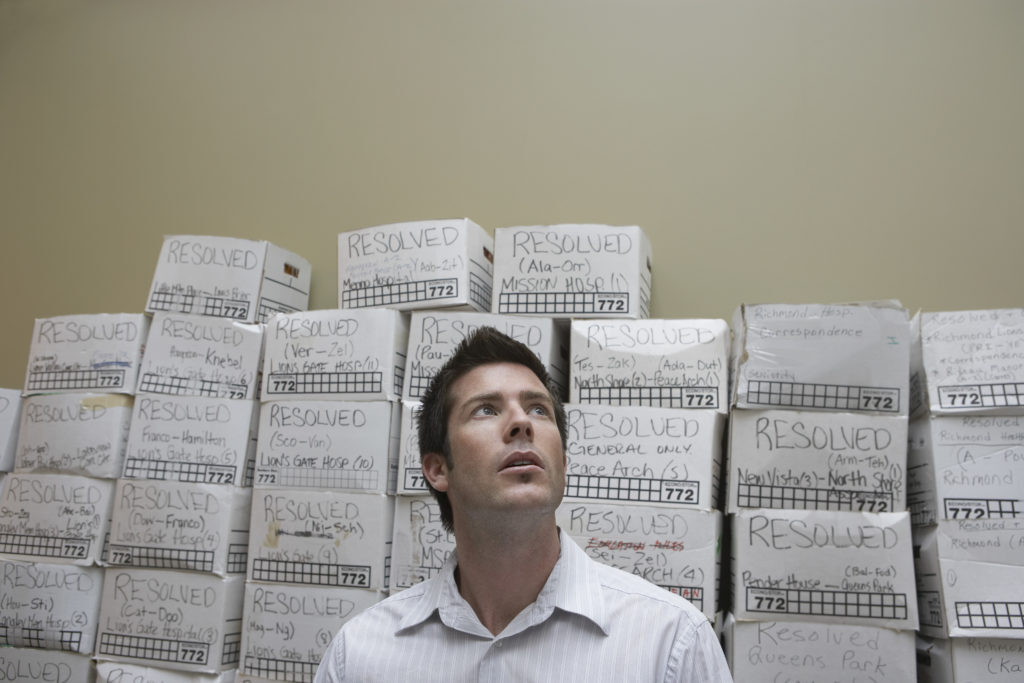
The past couple of decades has seen a massive drive towards going 'green'.
This direction has been fueled by the sobering realisation that we have been harming our planet and that global warming will have catastrophic consequences if not halted.
But also companies are seeing the business benefits of going green. Not only does it appeal to modern consumers’ sense of eco-consciousness, but it also helps companies cut costs and increase efficiencies.
One way companies have become more environmentally friendly has been to go paperless.
'Paperless' means they have been replacing their manual processes with digital methods — replacing paper with digital records.
For instance, rather than sending clients invoices printed on paper, companies are now sending digital invoices via email. Paper documents which were once stored in filing cabinets are being digitally scanned and hosted in the cloud.
If you own or run a company, you might be asking yourself whether you should move to become 'paperless'?
The short answer is yes.
Here are seven benefits of going paperless.
1. Reducing costs
Going paperless helps you reduce costs in several ways.
The average office employee uses more than 10,000 pieces of paper annually. Imagine the cost of stationery which can be saved by going paperless.
Companies also cut costs with regards to the other activities that abound in an office full of paper; including printing, faxing, and buying ink or toner.
You will also reduce your company’s storage needs. After all, with fewer sheets of paper floating around an office, you will need less shelf space.
Besides saving space, employees of paperless companies also save time on filing and organising their documents, allowing them to focus on more value-adding activities.
Keeping thousands of important documents organised can be expensive and will require a robust classification system in place to keep track of everything. But, when these same documents are stored digitally, they can be automatically organised, sorted and searched.

2. Reducing clutter
If you’ve ever walked into a cluttered office, the first thing that must have struck you is the shocking number of loose sheets of paper lying all over the place.
To make matters worse, some of those pieces of paper belong in the trash, while others need to be filed and stored. The only way to figure out which paper belongs where is to sit down and de-clutter the workspace, a process that can take time and effort.
The National Association of Professional Organizations has cited 'paper clutter' as the biggest problem for most businesses. Studies show the average person wastes 4.3 hours per week searching for papers, which adds unnecessary frustration and stress to the workplace.
A well organised paperless office doesn’t have to contend with this problem.
3. Making your business processes faster and simpler
Going paperless increases a company’s efficiency.
First, it makes administrative tasks much easier. There are countless electronic versions of traditional paper-based processes which are more flexible, efficient and accurate than their paper equivalents:
- Scheduling meetings using online shared calendars.
- Managing customer service enquiries using a case management tool
- Administering customer and sales information in a CRM tool
- Processing purchase orders, invoices and payments electronically, including obtaining digital signatures.
- ... and of course managing employee leave management using Leave Dates!
Digitising important documents also gives employees access to important documents anytime and anywhere, which is a particularly important consideration for any business looking at remote working.
Moreover, employees have access to the latest versions of these documents, making meetings and projects run smoother.

4. Exchanging critical documents online
When companies go paperless, not only do employees have access to the latest versions of all their critical documents, but they can also exchange critical documents with each other, improving communication and collaboration.
Thanks to tools such as Google Docs and Microsoft Office 365, several employees can work on the same document simultaneously and see the edits done by their colleagues in real-time.
This enhanced collaboration allows teams to explore their creative potential and respond more quickly to feedback.
5. Enabling remote work and outsourcing
The increased access to documents online means that employees are less tied to the office and you can begin leveraging the benefits of remote working.
Outsourcing tasks will become easier than before, reducing your need for a full-time team.
Many companies now operate without a physical office by hiring remote workers and outsourcing specialist tasks. These companies need to be paperless to function smoothly.

6. Making documents more secure
Data privacy and security are two of the biggest challenges facing companies in 2020. In particular, the protection of personal information is a top priority.
With that in mind, the question becomes whether paper documents or electronic files are more secure?
Even though electronic files are liable to be hacked or stolen online, paper documents are subject to many more threats. Aside from the obvious threats of someone breaking into a company and stealing its documents, sheets of paper can be ruined by fire, by flooding, or just by old age.
If a paper document is lost, there is no getting it back, and storing duplicates of paper documents multiplies the risk of theft. On the other hand, digital files can be stored on encrypted servers and replicated to multiple locations to ensure they don't get lost in the event of a disaster. These servers can track who accesses each document and what changes they make, so in the event of a security breach, the company can trace it.
7. Protecting the environment
Given that paper is made from processed wood, going paperless translates to saving more trees.
At a time where global warming is an ever-increasing menace, the imperative to go paperless and reduce the demand for trees has never been more pressing.
Besides releasing oxygen, trees absorb CO2, which can help limit our carbon footprint as a species.

In summary
Even though going paperless may be a challenge, companies stand to gain a lot by abandoning their physical documents for digital ones. We hope these 7 reasons help convince you to make the leap.
After all - it's a win-win situation. Your business processes will become more efficient and you will be contributing to saving the planet for generations to come.
FAQs
How can companies effectively transition to a paperless office, and what challenges might they face during the process?
There can be some challenges for employees in the transition to a paperless office, and it is crucial to provide training and support to make that shift as smooth as possible. Doing so will significantly minimise disruptions to your workflow and allow team members who favour traditional systems to see the value in your new paperless environment.
What specific tools or technologies are recommended for maintaining document security in a paperless environment, and how can companies ensure data privacy?
Maintaining the security of your data and documents is a high priority when moving to a paperless office. An important first step is to ensure that your access controls are planned and monitored, with any changes to access going through a thorough approval process. Storing your data requires secure servers, encryption and storing data in more than multiple secure places. The 3-2-1 rule is widely used for storing data and documents securely; keeping three copies of your data across at least two different types of storage media and one copy off-site is advised. Using these tools and technologies and any other measures appropriate for your industry will help you ensure your data remains private and you leave paper in the past.
Are there any industries or types of businesses where going paperless might be more challenging or less practical?
There certainly are. Due to compliance issues and legal constraints, healthcare, legal and government bodies have been slower to adopt paperless workplaces. If you want to shift to paperless but believe your business or industry may be restricted by compliance issues, seek specialist legal advice.



